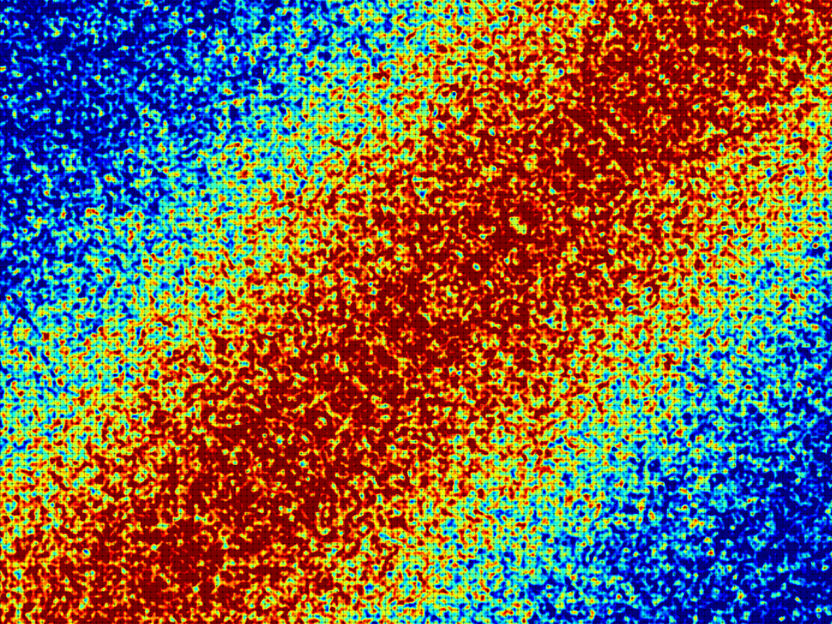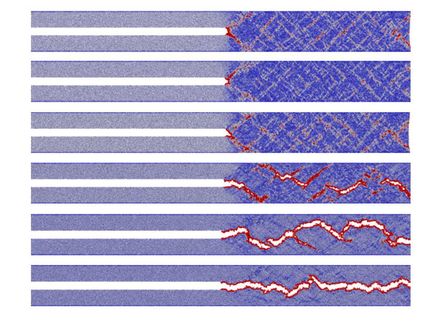German-French team of researchers discovers anti-aging in metallic glasses
metallic glasses and humans inhabit the same universe: they age. In time, their physical properties change towards a distinct direction. Researchers from the University of Göttingen and the European Synchrotron ESRF in Grenoble have now discovered a surprising effect in ultrastable metallic glasses. When subjected to typical aging conditions, this new class of metallic glasses evolved inversely – they showed anti-aging.

Two-time correlation function, depicting spontaneous structural dynamics of an ultrastable metallic glass.
University of Göttingen
Unlike conventional metals, metallic glasses have a disordered atomic structure. This disorder is central to their behavior and enhances their properties with respect to conventional metals. A metallic glass is harder and simultaneously more elastic than a conventional metal. This characteristic makes metallic glasses especially interesting for highly demanding applications such as surgical implants. Unfortunately, their intrinsic disorder makes the atomic structure unstable. It changes spontaneously and causes their physical properties to change – the metallic glass ages.
“The source of its advantage is also the weak point of a metallic glass and forms a huge drawback in terms of usability,” explains Martin Lüttich, PhD student at Göttingen University’s I. Physical Institute and co-author of the study. “This is a crucial problem for applications which rely on the constancy and permanence of the used material.” The studied ultrastable metallic glass is produced on a new path of glass formation and benefits from a drastically enhanced mobility of the atoms during preparation. This leads to enhanced properties compared to conventionally produced metallic glasses.
“Since on the microscopic scale both conventional and ultrastable metallic glasses behave rather similarly, our discovery of anti-aging in ultrastable metallic glasses came as a surprise,” says Lüttich. The unexpected finding is an important piece of knowledge in understanding the underlying mechanisms of structural dynamics in metallic glasses and in tailoring them for application.
Original publication
Other news from the department science

Get the chemical industry in your inbox
By submitting this form you agree that LUMITOS AG will send you the newsletter(s) selected above by email. Your data will not be passed on to third parties. Your data will be stored and processed in accordance with our data protection regulations. LUMITOS may contact you by email for the purpose of advertising or market and opinion surveys. You can revoke your consent at any time without giving reasons to LUMITOS AG, Ernst-Augustin-Str. 2, 12489 Berlin, Germany or by e-mail at revoke@lumitos.com with effect for the future. In addition, each email contains a link to unsubscribe from the corresponding newsletter.



























































